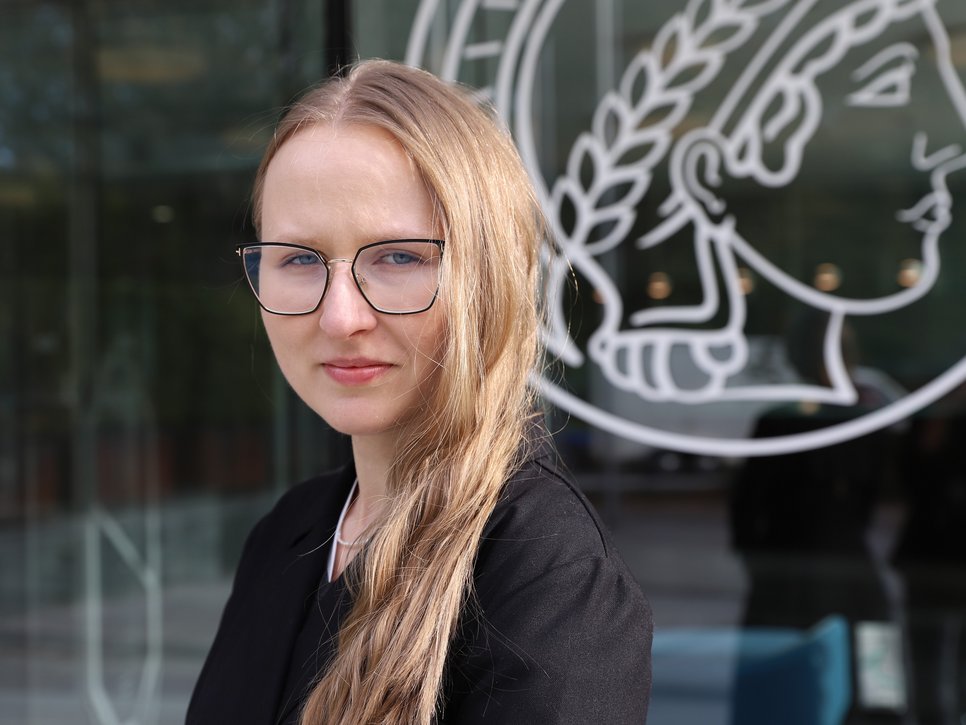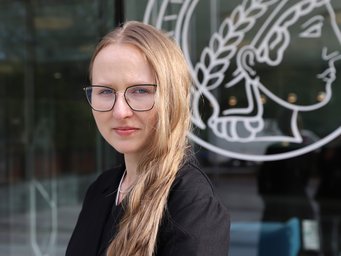A conversation with EUI Visiting Fellow Dorota Nowacka
Dorota Nowacka is a doctoral candidate at the European University Institute (EUI) in Florence. In the context of an exchange program between EUI and Max Planck Law, she is conducting research at the Institute in September and October 2024. With her wide-ranging and internationally oriented background, the Polish legal scholar has found ideal research conditions here in Hamburg.

“I was very impressed by the scope and level of specialization of the Institute's library. The number of journals alone is enormous. Having access to so many practice-orientated publications has also been particularly helpful for me,” says the young researcher. In her doctoral project she is exploring the harmonization of European insolvency law. “The very disparate legal provisions on security rights in the individual Member States have long been seen as an obstacle to the harmonization of European Union insolvency law. I am analyzing these differences from a comparative perspective. The focus of my study is the position of secured creditors in Ireland, Spain, Italy, and Poland. With this selection of legal systems, I am hoping to shed light on the range of national solutions within the EU. By using the traditional functional method combined with socio-legal comparative law, I am looking to determine how the European legislator and the respective Member States strike a balance between different stakeholder interests and the objectives of restructuring law, and what this means for the harmonization efforts in general.”
It was an excursion into legal practice that sparked her interest in European insolvency law. After studying law at the Jagiellonian University in Krakow, she worked for two years in the debt collection department of Krakow’s local government. She had already developed a strong interest in foreign law, private international law, and comparative law during her studies. Among other academic efforts, she completed the American Law Program at the Catholic University of America Columbus School of Law at the Jagiellonian University and a Master Exchange Erasmus+ program at the Autonomous University of Madrid. She expanded her knowledge of Spanish law through participation in the Spanish Law Programme, which the Jagiellonian University organizes together with the Universities of Alicante and Granada. Before beginning her doctoral studies, she also earned a Master’s degree in Comparative, European, and International Laws (LL.M.) at the EUI. In addition to Polish and English, she also speaks Spanish and Italian.
What prompted her to undertake research in Hamburg? “I heard many positive things about the Hamburg Institute at the EUI, especially about the library's extensive collection and the opportunity to conduct work in a focussed and undisturbed manner. I have also come to benefit greatly from participating in events such as Coffee & Law, where I have met colleagues from around the world.” In terms of settling upon her own career path, she also values the international contacts that can be made at the Institute. She has not yet decided whether she will remain in academia in the long term. “At the moment, I am of course primarily working on my dissertation. But it’s good to know what fields of activity and options are available for the time afterwards.”
Image: © Max Planck Institute for Comparative and International Private Law / Johanna Detering
